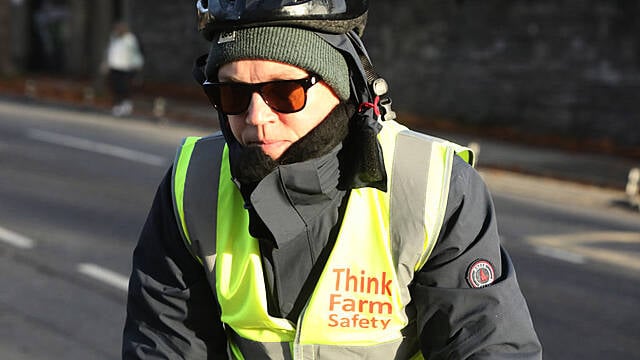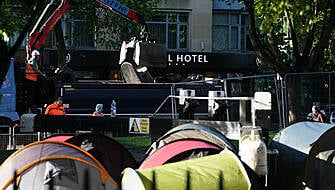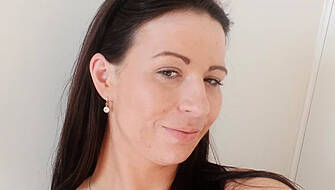The case of a law professor who fatally shot a trespasser on his farm is "all about emotion", and whether the accused was motivated by anger or fear is "at the very core" of his trial, defence lawyers have told a Central Criminal Court jury.
The killing of trespasser Keith Conlon was "a tragedy and a grievous waste of human life" but it did not happen because of any crime committed by barrister Diarmuid Phelan, his defence team argued on Tuesday.
The jury has heard that on the day in question three men - the deceased Keith Conlon, along with Kallum Coleman and Robin Duggan - had trespassed on a wooded area of Mr Phelan's land while hunting foxes or badgers.
Evidence has been given that Mr Phelan had shouted at two of the unarmed trespassers on his farm to "get back" before he fired three shots from his Smith & Wesson revolver.
It is the State's case that two of the three shots were fired into the air, while the third connected with Mr Conlon.
It is also the prosecution's case that when the third shot was fired by Mr Phelan, the gun was pointed in the direction of the deceased who was shot in the back of the head when he had turned away to leave.
It is in those circumstances, the prosecution say, that the accused intended to kill or cause serious injury to Mr Conlon.
It is the defence's position that Mr Phelan accidentally hit Mr Conlon while firing three "warning shots".
Mr Phelan (56) has pleaded not guilty to murdering father-of-four Keith 'Bono' Conlon (36) at Hazelgrove Farm, Kiltalown Lane, Tallaght, Dublin 24 on February 24th, 2022.
The accused man is a barrister, law lecturer and farmer who owns Hazelgrove, formerly a golf course in Tallaght.
In his closing speech today, defence counsel Sean Guerin SC said it was not in dispute that Mr Phelan took out his revolver that day and fired a shot, which proved to be fatal.
He said Mr Phelan had shot Mr Conlon and killed him by shooting a bullet into his head. He said these were proven and admitted facts in the case.
However, the lawyer said what was in dispute was how that had happened, in what circumstances and why.
He added: "James Joyce told the story of following one man about the city one day and walking each step with him, telling as only a novelist can about the history of that man". He submitted that this was what the jury had to do in this case.
Counsel said that every jury had to look inside the minds of the actors in the case and to look inside the mind of an accused to see if there was the necessary intent. "Every jury has to be able to look inside the minds of the participants and this is particularly important in this case," he added.
Furthermore, Mr Guerin said he would be critical of many parts of the prosecution's closing speech but submitted that the greatest error of all was when the State said the case was not about emotion.
"This case is all about emotion, two emotions in particular, it's about fear and anger," he stressed.
He said the prosecution case is that Mr Phelan was angry when he shot Mr Conlon but the defence case is that the accused was in fear. "Which of those emotions was the motivating factor for what happened is at the very core of this case," he said.
Mr Guerin told the jurors that this is why they cannot step back and look at events from a distance without walking every step with Mr Phelan up to February 22, 2022.
He said there was "an enormous double standard" by the prosecution in the case; "They want you to stand on the mountain and take a survey of the scene when it suits them".
"They will tell you everything you might have heard about Mr Conlon kicking a guard in the head and that you can ignore it. And at the same time they say you know these two men were unarmed and you must treat Mr Phelan as if he knew that," he continued.
Mr Guerin asked the jurors how they knew Mr Conlon was unarmed that day on the farm; "what evidence have you received that allows you to draw that conclusion beyond a reasonable doubt".
He asked the jury that if they saw three men coming out of the bushes on a farm, with one dressed in camouflage gear, would they at least think there is a risk that they had a knife with them.
Counsel said one of the farmhands working at Hazelgrove had that same fear on the day.
He said the prosecution had "fabricated" the evidence of one of the farmhands Pierre Godreu, who had said the first two shots were fired in the air by the accused and that the third shot was fired in a different direction.
"Mr Godreu was asked in his evidence under cross-examination how he knew the third shot was fired in a different direction and it was because he said the man was hit,' stated counsel.
He said the prosecution had told the jury in their closing speech that Mr Godreu had observed a change in the angle of the firearm. "He never said he did," he added.
Mr Guerin acknowledged the fact Mr Conlon was killed that day was "a tragedy and a grievous waste of human life" but said the defence case was that it didn't happen because of any crime committed by Mr Phelan.
He said the defence case was that the three shots fired were warning shots and never intended to strike the two trespassers.
Counsel indicated that even if the prosecution satisfied the jury beyond a reasonable doubt of the existence of such an intention, the other question was whether the actions of Mr Phelan were "a legitimate use of force in self defence". He said this defeated the existence of intention and that was a central question in the case.
Defence counsel Mr Guerin will continue giving his closing speech to the jury of nine men and three women this afternoon.





